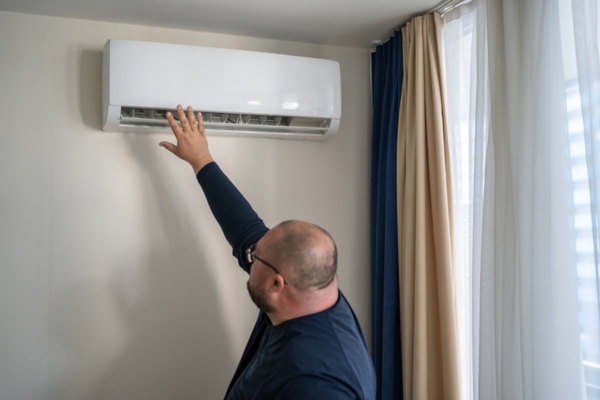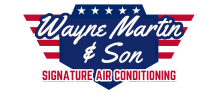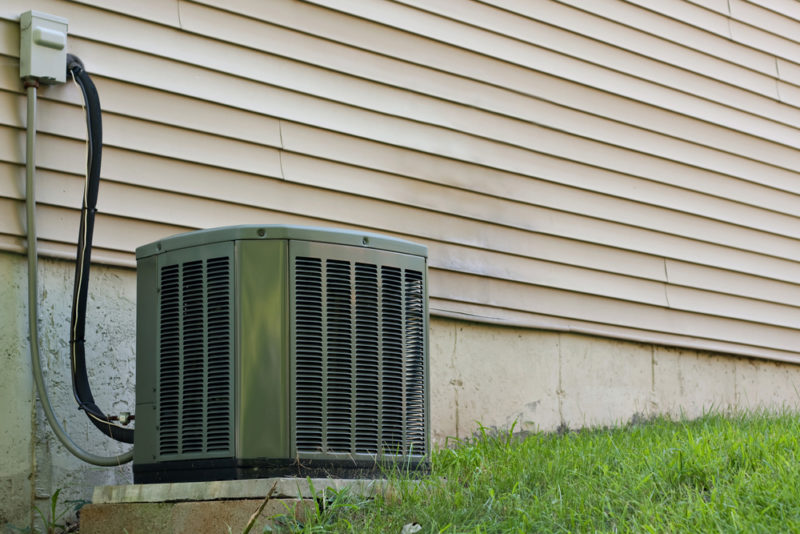AC Short Cycling: Did you know that, according to the U.S. Energy Information Administration, Florida homeowners spend 40% more on electricity each year than the national average. Therefore, we need to work on Preventing AC Short Cycling. Moreover, electricity comprises roughly 90% of the total energy consumption of households in the Sunshine State. Given the hot and humid climate, it comes as no surprise that here in Southwest Florida we rack up plenty of dollars in energy bills trying to keep ourselves cool. If your air conditioner is short cycling, though, it can lead to a sudden spike in your energy costs. In this article, as your Southwest Florida AC experts, we, at Wayne Martin & Son Signature Air Conditioning will tell you everything you need to know about how to prevent your air conditioner from short cycling.

Get the facts on Preventing AC Short Cycling
No matter what type of air conditioner you have, it has a compressor. This component sends refrigerant through the other relevant parts of the system to cool the air before circulating it. Whenever your air conditioner is in the midst of a cooling cycle, the compressor is on. On a hot day, an HVAC system will go through three cooling cycles each hour, with the typical cycle lasting for about 10 minutes* (NOTE: In SWFL during summer it can take as long as an hour). In other words, the cycle runs for 10 minutes, followed by a 10-minute break, and then repeats that process twice more that hour.
What does all this have to do with short cycling? Glad you asked! Short cycling happens when the cooling cycle is less than its normal period—in this case, about 10 minutes (NOTE: In SWFL during summer it can take as long as an hour). When your AC starts to short cycle, the compressor turns on and off more frequently. By starting and stopping more often, your compressor experiences excess wear while also cooling your home less effectively and increasing your utility bills.
When it Comes to Preventing AC Short Cycling, Consider These Sources
If you’re noting that your AC unit is cutting on and off too much, the most typical culprit is a lack of refrigerant in the unit. Not having enough refrigerant can cause other problems, including an accumulation of ice. If your evaporator coils do ice over, your AC unit won’t be able to function as it should, improperly cooling your home.
Having your thermostat in the wrong place in your home can also cause AC short cycling. A poorly placed thermostat can trigger your HVAC to cut on more than it should. For example, if your thermostat is in a spot that gets a lot of sunshine on it, then it will register the house as being hotter than it actually is. Or if the thermostat is near the kitchen, chances are good that when you cook, the thermostat will register as hotter than the rest of the house.
A short-cycling problem could be something as simple as a dirty filter in your unit. If your filter is dirty or clogged, it impedes airflow, making your air conditioner work harder than it needs to, potentially leading over time to the system overheating or total shutdown.
We know it sounds like a bigger air conditioner would be better, but short cycling also may stem from an HVAC system that is too big for the space it is cooling. That excess capacity allows for quick cooling, but often leads to quick shutdowns, and short cycling. The end result can be massive fluctuations in temperature, and an excess amount of stress being placed on your AC system.
Lastly, if you notice your AC unit turning on and off frequently, another culprit could be the low-pressure control switch. This activates the compressor whenever the amount of refrigerant in the system drops below a certain point. If this switch is broken, then it could be reading that the air conditioner doesn’t have enough refrigerant, even if it does. Our technicians can replace the switch and have your unit cycling at the proper intervals in no time.
How Do I Know if My AC Unit is Short Cycling?
The proper number of cycles per hour for your air conditioner depends on several factors: the size of the unit, the size of the space that needs to be cooled, the layout of your home or business, and whether or not it has quality insulation. Keep in mind that a single-stage air conditioner will cycle more than an air conditioner with variable capacity or two stages. You also need to take the current weather in mind. If there is especially high heat and humidity, which happens quite often in Southwest Florida, your air conditioner may just be struggling to keep things reasonably cool given the current conditions.
Your Checklist to Prevent AC Short Cycling
As with almost any problem, taking preventive measures before an issue develops is better than seeking a remedy after the fact. When it comes to your air conditioner, a little bit of prevention will save you time and money in the long run, while also keeping your home cool. Follow these steps to keep your AC system running at its best and prevent AC short cycling:
Check your filter – We’ve mentioned this in other blog posts, and for good reason. It’s quick, easy to check and replace, and having a clogged or dirty filter could cause an assortment of issues related to the function of your air conditioner. We recommend checking your filter at least once a month and changing it anytime it becomes caked with dust and debris.
Thermostat placement – It’s 80 degrees outside; do you know where your thermostat is? It should be placed in a central location, ideally an inside wall of your home. Put your thermostat too close to an air vent and it will confuse the readings because of the nearby flow of cool air.
Refrigerant levels – Not having enough refrigerant can be the culprit behind a host of issues with your HVAC. While we understand the do-it-yourself mindset, it’s best to have a trained, experienced professional like the technicians at Wayne Martin & Son to check these levels. If you sign up for one of our annual maintenance contracts, we’ll come out and perform a check-up on your unit once every six months, and that includes checking refrigerant levels and finding any possible refrigerant leaks in your AC system.
Under pressure – Low pressure, that is. As mentioned earlier, a malfunctioning low pressure control switch can cause your air conditioner to start short cycling. If you’ve addressed all of the above items on this checklist, the low-pressure control switch might be the problem component and need to be replaced. You’ll want our professional HVAC technicians to handle this job for you.
Compressor replacement – Remember what we said about short cycling putting excessive wear on your compressor? Well, short cycling also can be a symptom of a compressor that is about to give up the ghost. If you notice your HVAC is cutting on and off too frequently, call a professional company like Wayne Martin & Son Signature Air Conditioning to inspect the component and possibly replace it.
Regular maintenance – Your best defense against short cycling and any other issue related to your air conditioner is to have the system checked often by an experienced and trained professional. Our annual maintenance contracts will keep your AC system functioning smoothly all year long. Each contract includes twice-yearly checkups of the system, including cleaning the drain lines, filters, and coils. Being one of our yearly maintenance customers will give you a 10 percent discount on needed repairs. Plus, at our low price, you’re saving 17% each year on just the cost of the two regular maintenance visits that occur on an annual basis. To find out more or schedule your first maintenance appointment, call our office at (239) 462-4068.
Wayne Martin & Son Signature Air Conditioning is proud to offer repair, sales, and service to our customers throughout Southwest Florida.

